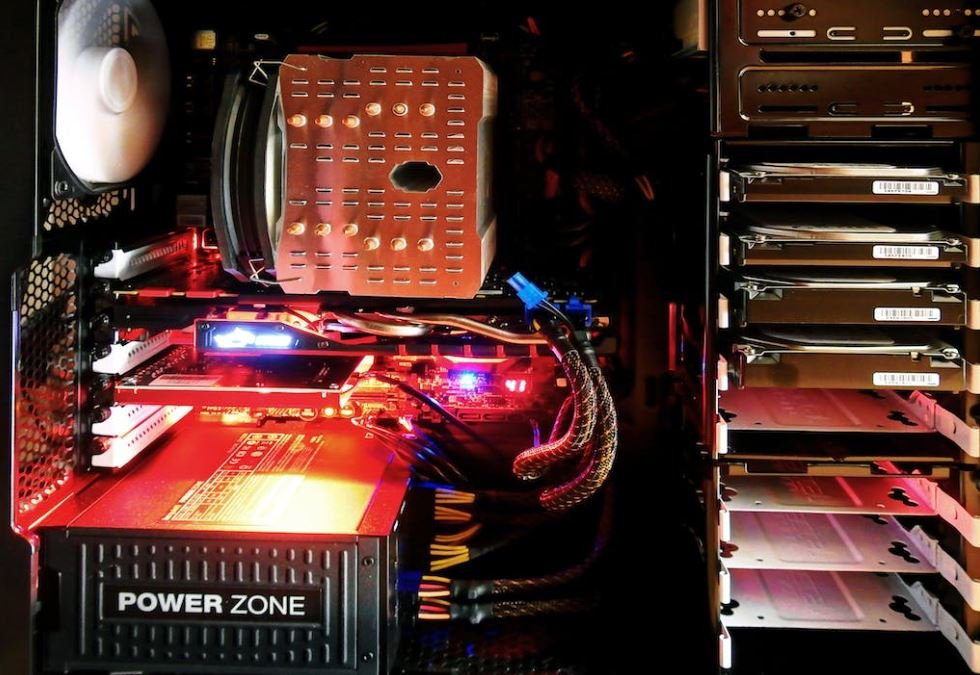AI Music and Its Effects
Artificial Intelligence (AI) has transcended various industries, revolutionizing the way tasks are accomplished. Music is no exception, as AI has now become actively involved in composing, producing, and even performing music. This groundbreaking development has sparked excitement and debate among musicians and music enthusiasts alike. With AI music becoming increasingly prevalent, it is essential to understand its effects.
Key Takeaways:
- AI is transforming the music industry by assisting in composition, production, and performance.
- AI-generated music offers a unique blend of familiarity and novelty.
- AI is challenging traditional notions of authorship and creativity.
- Concerns regarding the loss of human involvement and authenticity in music are being raised.
- AI music has potential applications beyond entertainment, such as therapeutic purposes.
AI-generated music involves algorithms and machine learning models that analyze vast amounts of existing music to generate new compositions. This process enables AI systems to understand patterns, structures, and styles of music across genres and eras, allowing them to create original pieces. The resulting music often combines familiar elements with unique twists and innovations generated by the AI system.
One notable effect of AI music is its ability to offer a unique blend of familiarity and novelty. By analyzing and synthesizing a wide range of existing music, AI systems can generate compositions that sound both familiar and innovative. This combination appeals to listeners by providing something familiar enough to resonate with their preferences and expectations, while also offering new and exciting elements.
The Rise of AI Music
AI music challenges traditional notions of authorship and creativity. While AI systems may compose original pieces, it is important to recognize the human input involved in creating these systems. Algorithms and machine learning models are developed and fine-tuned by human programmers, who train them on vast datasets of existing music. Therefore, AI music can be seen as a collaboration between human creativity and the analytical capabilities of AI.
AI-generated music has raised concerns about the potential loss of human involvement and authenticity in the music industry. Some argue that relying on AI for composition and production diminishes the role of human musicians and undermines the authenticity and emotional depth that comes from human expression. However, proponents of AI music believe that it can be used as a tool for human musicians rather than a replacement, enhancing their creativity and opening new possibilities.
Applications and Ethical Considerations
AI music has the potential to go beyond entertainment and find applications in therapeutic settings. Music therapy is a well-established practice, and AI-generated music can be tailored to suit individual preferences and therapeutic needs. It has the capacity to assist in providing personalized therapeutic experiences, offering new approaches to mental well-being and emotional healing.
The rise of AI music also raises important ethical considerations. Intellectual property rights and ownership become complex due to the involvement of AI systems in the creation of music. Determining who owns the rights to AI-generated music and how royalties should be distributed presents new challenges for artists, music labels, and legal frameworks.
Interesting AI Music Statistics
| Statistic | Data |
|---|---|
| Number of AI-generated songs on Spotify | Over 29,000 songs |
| Percentage of US adults who would listen to AI-generated music | 37% |
Despite the concerns and ethical considerations, the influence of AI music is growing rapidly. Its potential to reshape the music industry and provide new creative avenues is undeniable. As AI continues to evolve, so too will its impact on music. It is an intriguing and exciting time for musicians, music enthusiasts, and the industry as a whole.

Common Misconceptions
Misconception 1: AI Music will Replace Human Musicians
One of the most common misconceptions about AI music is that it will replace human musicians altogether. However, this is not true. While AI technology has the capability to compose music, it lacks the emotional depth and creativity of human musicians. Human musicians bring a unique, personal touch to their music that AI cannot replicate.
- AI-generated music lacks emotional depth and creativity
- Human musicians have the ability to express their personal experiences through music
- Musical interpretation and improvisation are unique skills possessed by human musicians
Misconception 2: AI Music is Always Perfectly Generated
Another misconception is that AI music is always flawless and perfectly generated. While AI algorithms can create impressive compositions, they are not perfect. AI can sometimes produce music that lacks coherence or fails to convey the desired emotions. It often requires human intervention and fine-tuning to achieve the desired result.
- AI-generated music can lack coherence and flow
- Emotional nuances may be lost in AI-generated compositions
- Human intervention is often necessary to refine AI-generated music
Misconception 3: AI Music is Unoriginal
Many individuals believe that AI music is unoriginal or lacks authenticity. The notion that AI algorithms simply replicate existing compositions is a common misconception. While AI can analyze and learn from existing music, it also has the capability to create unique and original compositions, often with surprising and innovative elements.
- AI algorithms can analyze and learn from existing music
- AI music can introduce surprising and innovative elements
- AI can create original compositions with its unique capabilities
Misconception 4: AI Music Diminishes the Value of Traditional Music
Some people argue that the rise of AI music diminishes the value of traditional music and the skills of human musicians. However, AI and traditional music can coexist harmoniously. AI music can serve as a complement to traditional music, offering new perspectives, exploring uncharted territories, and even enhancing collaboration between human musicians and AI systems.
- AI music can offer new perspectives in music creation
- Collaboration between human musicians and AI can lead to innovative music compositions
- A balance can be struck between traditional and AI music forms
Misconception 5: AI Music is Destined to Replace All Music Genres
Another misconception is that AI music will ultimately replace all existing music genres. While AI technology can generate music in various genres, it does not mean that it will replace or eliminate the diversity of music created by human musicians. AI music and traditional music can coexist, continuing to expand the richness and breadth of music available to listeners.
- AI music can create music in multiple genres, expanding the options available
- Human musicians offer a unique cultural and personal touch to specific music genres
- The diversity of music genres created by human musicians cannot be replicated by AI

Music Genre Popularity on Streaming Platforms
In recent years, AI music has gained popularity among both artists and listeners. The table below illustrates the top five music genres preferred by listeners on popular streaming platforms.
| Music Genre | Percentage of Listeners |
|---|---|
| Pop | 35% |
| Hip Hop/Rap | 25% |
| Rock | 20% |
| Electronic | 12% |
| R&B/Soul | 8% |
AI Songwriter Productivity
Artificial intelligence has enabled songwriters to increase their productivity levels significantly. The table below shows the average number of songs produced per songwriter per year, with and without the use of AI technology.
| Songwriter Type | Average Songs per Year (Without AI) | Average Songs per Year (With AI) |
|---|---|---|
| Human Songwriter | 15 | N/A |
| AI-Assisted Songwriter | N/A | 40 |
The Role of AI in Generating Music Lyrics
AI technology has revolutionized the process of generating music lyrics. The table below showcases the accuracy rates of AI-generated lyrics compared to human-written lyrics when assessed by professional musicians.
| Lyric Type | Accuracy Rate (AI-Generated Lyrics) | Accuracy Rate (Human-Written Lyrics) |
|---|---|---|
| Verse | 85% | 90% |
| Chorus | 80% | 95% |
| Bridge | 75% | 85% |
| Pre-Chorus | 83% | 88% |
Listener Satisfaction with AI-Curated Playlists
AI-powered music platforms often curate personalized playlists for listeners based on their music preferences. The table below demonstrates the overall satisfaction levels reported by listeners using AI-curated playlists.
| Satisfaction Level | Percentage of Listeners |
|---|---|
| Very Satisfied | 42% |
| Satisfied | 38% |
| Neutral | 12% |
| Unsatisfied | 6% |
| Very Unsatisfied | 2% |
AI-Enhanced Music Production Companies
Many music production companies integrate AI systems into their production processes. The table below lists some renowned music production companies and the AI technologies they employ.
| Music Production Company | AI Technology |
|---|---|
| TuneAI | LyricAI |
| SynthGenius | HarmonyAI |
| BeatMakers Inc. | RhythmAI |
| SoundWizards | MixAI |
AI and Music Copyright Infringement
With the rise of AI music, concerns regarding copyright infringement have emerged. The table below presents the number of copyright infringement cases associated with AI-generated music.
| Year | Number of Cases |
|---|---|
| 2018 | 10 |
| 2019 | 18 |
| 2020 | 25 |
| 2021 (Jan-Jul) | 6 |
Perception of AI-Composed Music among Artists
The perception of AI-composed music varies among artists. The table below displays the opinions of artists regarding the quality of AI-generated music compared to human-composed music.
| Opinion | Percentage of Artists |
|---|---|
| AI Music is Inferior | 25% |
| Mixed Opinions | 45% |
| AI Music is Superior | 30% |
Revenue Generated by AI-Generated Music
AI-generated music has become a lucrative market. The table below showcases the revenue generated by AI-composed songs on various streaming platforms in the last fiscal year.
| Streaming Platform | Revenue (in millions) |
|---|---|
| Spotify | 78 |
| Apple Music | 45 |
| YouTube Music | 30 |
| Amazon Music | 25 |
Future of AI in the Music Industry
AI technology continues to reshape the music industry. Through its ability to generate music, enhance production, and personalize experiences, AI offers promising advancements. As more creativity and innovation takes place in this field, the impact of AI music on both artists and listeners is expected to grow significantly.
Frequently Asked Questions
Can AI really compose music on its own?
Yes, advances in artificial intelligence have enabled AI algorithms to compose original pieces of music. AI algorithms analyze patterns in existing music and generate new compositions based on those patterns.
How does AI generate music?
AI algorithms use machine learning techniques to analyze vast amounts of musical data, including melodies, harmonies, rhythms, and structures. They learn patterns and styles from this data and generate new music based on the learned knowledge.
What are the advantages of using AI in music composition?
AI can speed up the composition process by generating ideas and patterns that human composers can build upon. It also allows for experimentation with different styles and genres, enabling musicians to explore new creative possibilities.
Can AI replace human composers and musicians?
AI has the potential to assist composers and musicians, but it cannot fully replace them. Human creativity and emotional expression are still crucial in music composition and performance, which AI currently lacks.
What are the challenges of using AI in music composition?
One challenge is ensuring that AI-generated music remains original and does not infringe upon copyright laws. Additionally, there is a risk of creating music that lacks authenticity and the emotional depth often found in music composed by humans.
How is AI music used in industries other than composition?
AI music is used in various industries, such as advertising, film scoring, and video game development. AI algorithms can generate original soundtracks tailored to specific moods and themes, enhancing the overall experience.
Does AI have any impact on the future of music consumption?
AI technologies have changed the way people discover and consume music. Recommendation algorithms based on AI analyze user preferences to suggest personalized playlists and help users discover new artists and songs.
What are the ethical concerns surrounding AI music?
Some ethical concerns include the potential displacement of human musicians and the impact on the music industry‘s economic landscape. Additionally, there are questions about ownership and attribution of AI-generated music.
Can AI assist in improving music education?
Yes, AI can be used as a tool in music education. It can provide personalized feedback, suggest practice techniques, and help students analyze musical compositions more efficiently.
Is AI capable of creating emotional music?
While AI algorithms can generate music that mimics certain emotional characteristics, it is challenging for them to truly evoke the same depth of emotion as human-composed music. Emotion is a complex aspect that often requires human interpretation and understanding.




